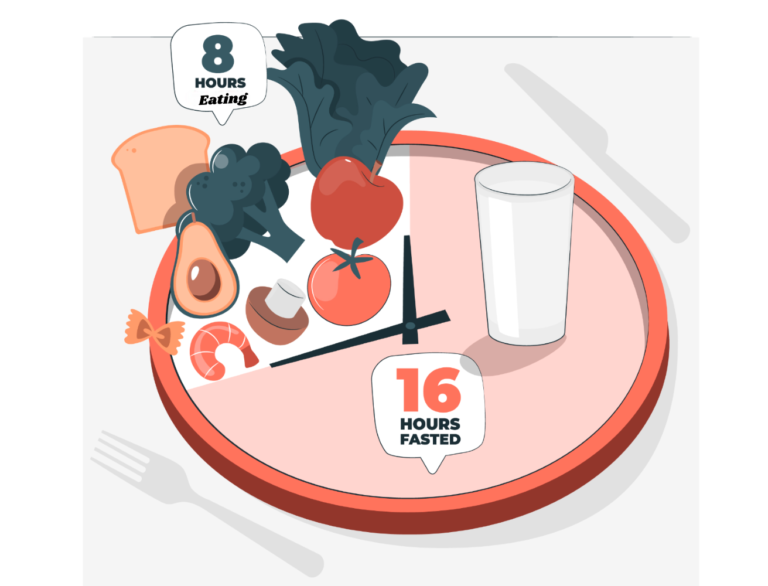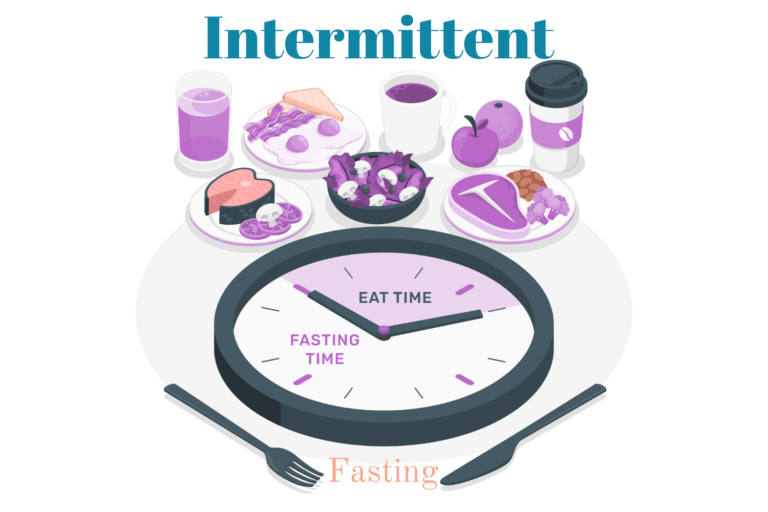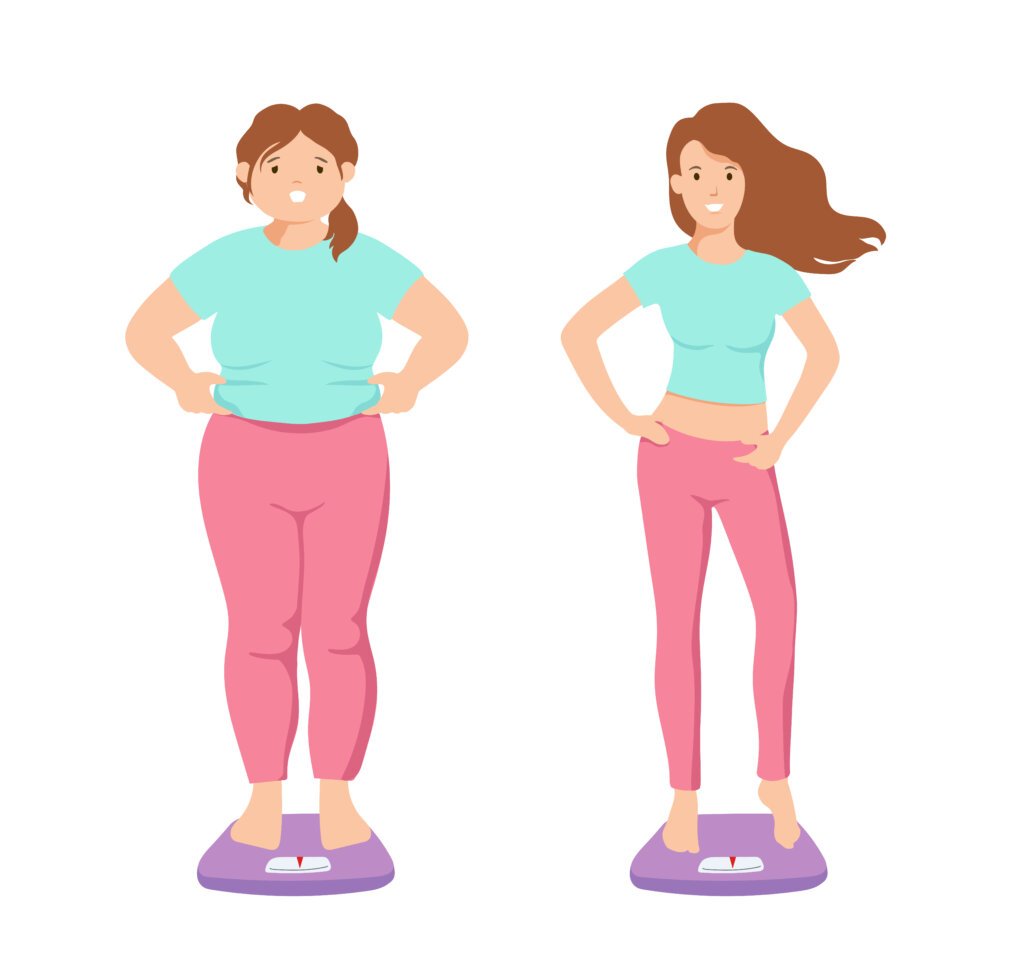Intermittent Fasting: A Complete Beginner’s Guide!

Intermittent fasting opens a new chapter in the modern diet industry. However, it has been practiced since ancient times, when humans used to hunt animals and birds in order to survive. Since then, the human body has adapted to fasting.
People use intermittent fasting as a tool to lose weight, but it definitely offers many health benefits. Many studies and clinical trials have shown that intermittent fasting not only aids in weight loss but also supports heart and brain health.
What is intermittent fasting?
Simply explained, intermittent fasting is a cycle between an eating period and a fasting period. It’s mainly an eating pattern that needs to be followed strictly if you’re getting into this diet method. There’s a limitation on time when you have to keep yourself away from food. It helps to limit your daily calorie intake.
For example, you can fast for 16 hours, 14 hours, 12 hours, or 20 hours. Then, in the remaining hours, you can take your meals. To commit to intermittent fasting, you have to skip one main meal, like breakfast or dinner.
Intermittent fasting doesn’t concern itself with ‘what to eat’. The main concern is with ‘when to eat’. Limiting the eating period by skipping one big meal a day gives you a choice. Whether you want to skip breakfast or dinner, or you can have your early dinner or a late brunch meal.
For example:
- Start your eating period at 10 am.
- Finish dinner by 6 pm.
- Have a brunch meal at 12 pm.
Now the question is-
Does skipping breakfast or dinner negatively affect our body?
The answer is ‘NO’! Skipping breakfast or dinner may not affect our body if we eat nutritious meals throughout the eating period. Eating nutrient-dense foods helps to maintain our body after fasting.
Which one is the main obstacle of Intermittent fasting?
Usually, the main obstacle while practicing intermittent fasting is “Hunger”. But it is not a concern really; as time passes, our body becomes accustomed to the fasting period. In the beginning, it may be difficult to stay focused, but people are advised to stick with it because, in the end, it will bring good results for sure.
A neuroscientist, Mark Mattson, has studied that the human body has evolved to go without food for hours, or even several days.
However, it can take two to four weeks before the body gets used to intermittent fasting. People might feel hungry or cranky before getting accustomed to the new meal plan.
How intermittent fasting works in weight loss?
Intermittent fasting works by burning calories during the fasting period. When the human body stays away from food for a longer period, it starts to burn fat stored in the body.
It also burns fat from the last meal to meet it’s needs. As a result, the body starts losing weight due to fat burning.
Intermittent fasting also limits calorie intake. People spend a longer time fasting, preventing their body from taking in calories, and they consume fewer calories than usual throughout the day.
Mattson also says that after hours without food, the body uses its sugar stores and starts burning fat. This situation is called’metabolic switching’.
What should people eat during fasting and eating periods?
During the fasting period, people aren’t allowed to consume any caloric food.
But they can consume drinks that don’t contain calories, like black coffee, green tea, herbal tea, chamomile tea, or just water.
Even during the eating period, people shouldn’t eat fast food or junk food. They have to maintain a healthy meal pattern.
Nutritious foods such as leafy vegetables, lean meat or fish, eggs, and fresh, colorful foods are suggested.
If people don’t avoid junk food during the eating period, intermittent fasting will not work.
Recent research about consuming food has shown that taking frequent small meals is more effective than having one heavy meal. It helps with digestion and metabolic activity.
So, it is advisable to take frequent small meals during the eating period rather than having 2-3 big meals a day.
Intermittent fasting is responsible for some hormonal changes in our body, which benefit both brain and heart health.
What are the health benefits during intermittent fasting?
Intermittent fasting dramatically affects our body by causing hormonal fluctuations.
- Insulin reduction: leads to body fat burning more quickly.
- Human Growth Hormone (HGH) increases: leading to fat loss.
- Lowers blood pressure.
- Improves resting heart rate.
- Improves brain function, especially in cases of Mild Cognitive Impairment (MCI), which is a stage before dementia.
- Cell repair: Fasting initiates the cell repair process.
- Aids in weight loss: The primary goal of intermittent fasting.
- Improves thinking and memory function.
- Prevents obesity: Animal studies have shown intermittent fasting prevents obesity.
- Type 2 diabetes benefits: Intermittent fasting may benefit those with Type 2 diabetes but not Type 1.
- Protects against heart disease and Alzheimer’s disease.
- Protects against cancer.
- Improves physical performance in both humans and animals: A study showed that mice fed on an alternating eating schedule performed better in running tests.
- Intermittent fasting is also used in treating PCOS (Polycystic Ovary Syndrome).
- Shows some results in reducing inflammation.
What are the Intermittent fasting methods?
People can practice intermittent fasting in many ways:
- 16:8 method: Fast for 16 hours and eat during an 8-hour window. This method is effective for weight loss but may be challenging for beginners, who can start with 12:12 or 14:10.
- 5:2 method: Consume 500-600 calories for two days a week and eat normally for the remaining five days.
- Eat-Stop-Eat method: Eat normally for 5 or 6 days a week and fast for 1 or 2 days. Balance meals on fasting days.
- Alternate-Day Fasting: Fast every other day and eat normally on the non-fasting days. Eat whatever you want during eating days.
- 12:12 method: This method is suitable for beginners and is considered safe for almost everyone.
Side-effects Intermittent fasting side effects?
Intermittent fasting may be effective for many reasons and brings a new perspective to weight loss. When done properly, intermittent fasting is very effective. However, one should consult with a doctor or health consultant before starting.
For some specific people, intermittent fasting is not advisable.
- Pregnant or lactating women.
- Children under age.
- Teenage girls.
- Elderly people.
- Type 1 diabetes patients.
- Underweight individuals.
- Malnourished patients.
- Women with average weight, as intermittent fasting can affect reproductive health.
Clinical research from 2021 shows that mild intermittent fasting, along with healthy eating patterns, movement, sleep patterns, and stress management, can help increase lifespan by at least 3 years.
Follow Us
100% FREE SUBSCRIPTION
What content would you like to receive?








